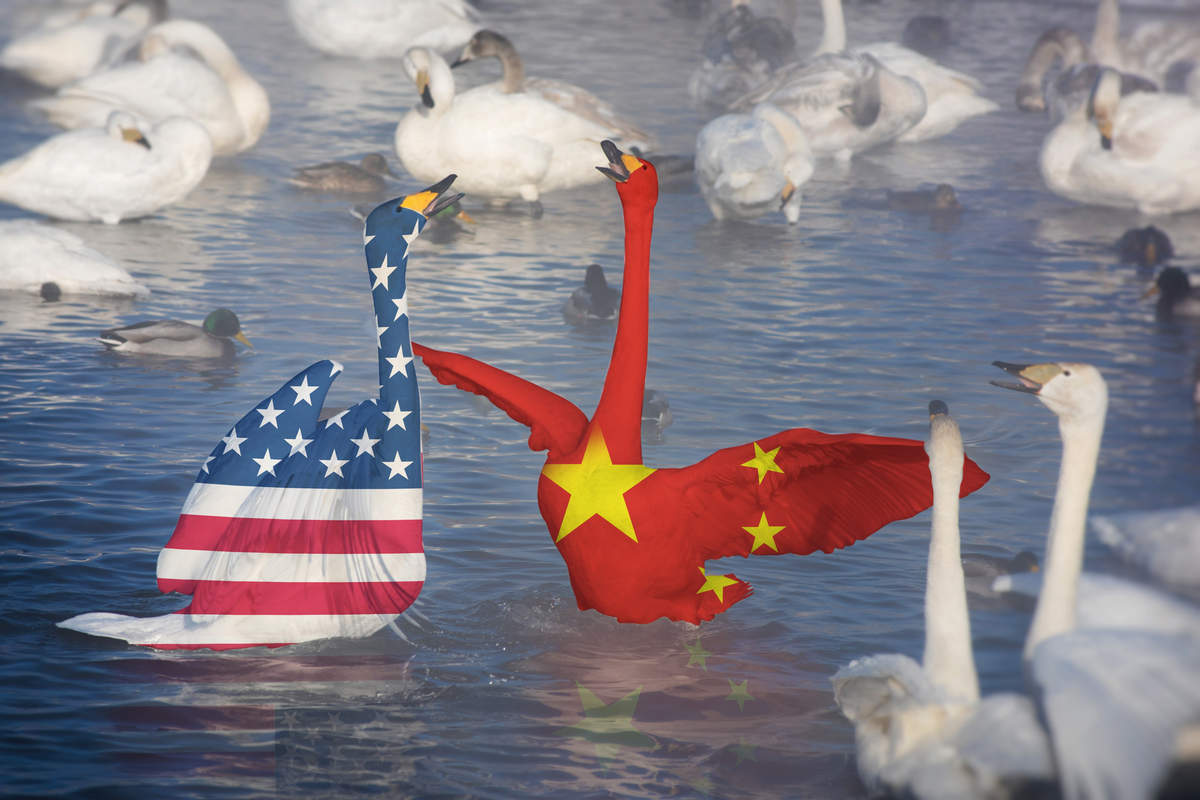
Technology items (computers, smartphones, microprocessors, etc.) have been removed from the list of Chinese products taxed at 145% by the United States. A setback that will be followed by others. And heralds the decline of the dollar as the world’s reserve currency.
A bold strategy that came up short
Donald Trump is neither a strategist nor a genius. He has just surrendered in open field to China. Xi Jinping isn’t going to “suck up” to him, as many other countries have done when faced with spiraling tariffs. On the contrary, he’s striking back blow for blow. China “will go all the way” in this arm wrestling match, announced the Minister of Commerce. A firmness that has shaken the occupant of the White House. Trump understood that he was risking a lot by provoking the Middle Kingdom. The United States imports 80% of its electrical equipment from China. Hence the U.S. president’s about-face in removing all technology products from the list of overtaxed items.
The warning also applies to other hot topics, such as Iran. If Trump were to consider bombing Teheran, as he has announced, Beijing might well not stand idly by. China imports 80% of its oil to fuel its economy.
International pressure
Donald Trump came to the presidency with a clear vision: to transform the United States from a declining empire into a powerful nation, refocused on its interests. His strategy rested on three essential pillars: reducing the budget deficit thanks to the Elon Musk-driven DODGE, disengaging from the war in Ukraine, and imposing tariffs to rebalance the US trade balance.
On April 7, 2025, Trump publicly declared that he would maintain tariffs despite mounting international pressure, going so far as to assert that “the whole world is kissing my ass to make deals”. This provocative statement triggered an immediate reaction: rising long-term interest rates and firm opposition from China.
Capitulation and its consequences
Faced with this international pressure and concerns within the Republican Party itself, Trump was forced to back down on April 9, announcing a 90-day moratorium on global tariffs, with the exception of China. This reversal sent a clear message to the world: the United States is no longer the hegemonic power of yesteryear.
This capitulation potentially marks a decisive turning point. Trump found himself in an untenable position: he could not simultaneously declare the end of the American empire while behaving like a dictator, dictating his will to the whole world.
Towards a new world order
The consequences of this failure could be considerable for the US economy. The dollar risks losing its privileged status, US bonds and real estate are under threat, and US technology giants could see their valuations revised downwards.
For the rest of the world, this crisis could paradoxically pave the way for greater independence from the United States. De-dollarization, already underway since the 2008 financial crisis, is likely to accelerate, prompting many countries to develop their industrial and financial sovereignty.
We are entering a more uncertain, but potentially more balanced world, where gold could regain its appeal as a safe-haven asset. The date of April 9, 2025 could thus mark the real beginning of a new multipolar world order.